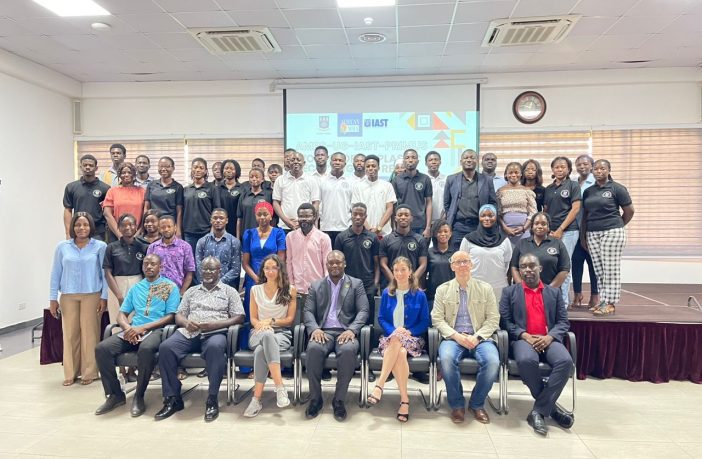|
Getting your Trinity Audio player ready...
|
Recycle and reuse plastic waste to lesson impact on environment. David Dodoo-Arhin, Director of the Institute of Applied Science and Technology (IAST) at the University of Ghana (UG), has stressed the need for reusing and recycling of plastic waste to lessen its environmental impact.
He said that the manufacture and disposal of single-use plastic products such as sachets, bottles, and polybags had contributed significantly to environmental degradation, emphasizing the importance of recycling and reusing.
Prof Dodoo-Arhin made this know during the opening of a three-day workshop of the 2024 PRIMUS-African Materials Research Society (AMRS) and IAST workshop on Plastic Waste Recycling in Accra on Thursday.
The workshop was on the theme, “Strengthening Research and Innovation Capacities in Sustainable Plastic Waste Recycling.”
It is under the auspices of the PRIMUS Project, which seeks to research new polymer recycling technologies.
Prof Dodoo-Arhin noted that recycling, reusing, incineration, and energy recovery were the main techniques for downstream plastic waste management.
He said that single-use plastic waste was the major constituent of industrial and municipal waste in cities after food and paper waste.
Prof Dodoo-Arhin pointed out that while most plastics took hundreds of years to degrade when disposed of, they had different degrees of environmental impacts, such as trapping and suffocating marine animals, as well as socioeconomic and public health consequences.
“A total of about eight million tonnes of plastic waste leak into the ocean each year. This growing threat posed by plastic pollution is being felt all around the world,” he added.
It is estimated that in Ghana, the manufacturing sector uses about 2.6 million metric tonnes of raw plastics annually, leading to over 1 million tonnes of annual plastic waste generation.
However, only around 9.5 per cent of it was collected for recycling, with the rest ending up in landfills, seas, lands, or being burned.
According to Prof Dodoo-Arhin, the sustainability implications of plastic waste management and valorisation systems in addressing the menace were yet to be fully understood.
He said the Environment Ministry had established the Ghana National Plastic Action Partnership to support the public and private sectors in transitioning to a plastic circular economy to ensure sustainable plastics management.
He went on to say that the “quadruplex innovation helix model,” which dealt with interactions between universities, industries, governments, and the public environment in a knowledge economy, was critical in finding long-term solutions to the problem within the framework of the circular economy.
Mr Bubu Kumordzie, Waste Segregation Officer of Jekora Ventures, said reductions in greenhouse gas emissions from exhaust gas emissions moving waste management vehicles and equipment were potential benefits of innovation.
He said the reduction in the volumes of solid waste that eventually get to the landfill for disposal was also a potential impact of innovation.
Mr Kumordzie identified several main obstacles in waste management, including high investment and working capital costs, a lack of low-interest financing to scale up operations, an unfriendly tax and incentive regime, a weak value system, and a waste segregation culture.
He said the private sector had also contributed to waste management through infrastructure provision, capital ingestion, capacity building, inclusivity, innovation, job creation, and the commercialization of research products.
“Intensify awareness creation on the advantages of using recycled products within the context of environmental impact and develop operational standards for recycling,” he added.
Source: GNA





